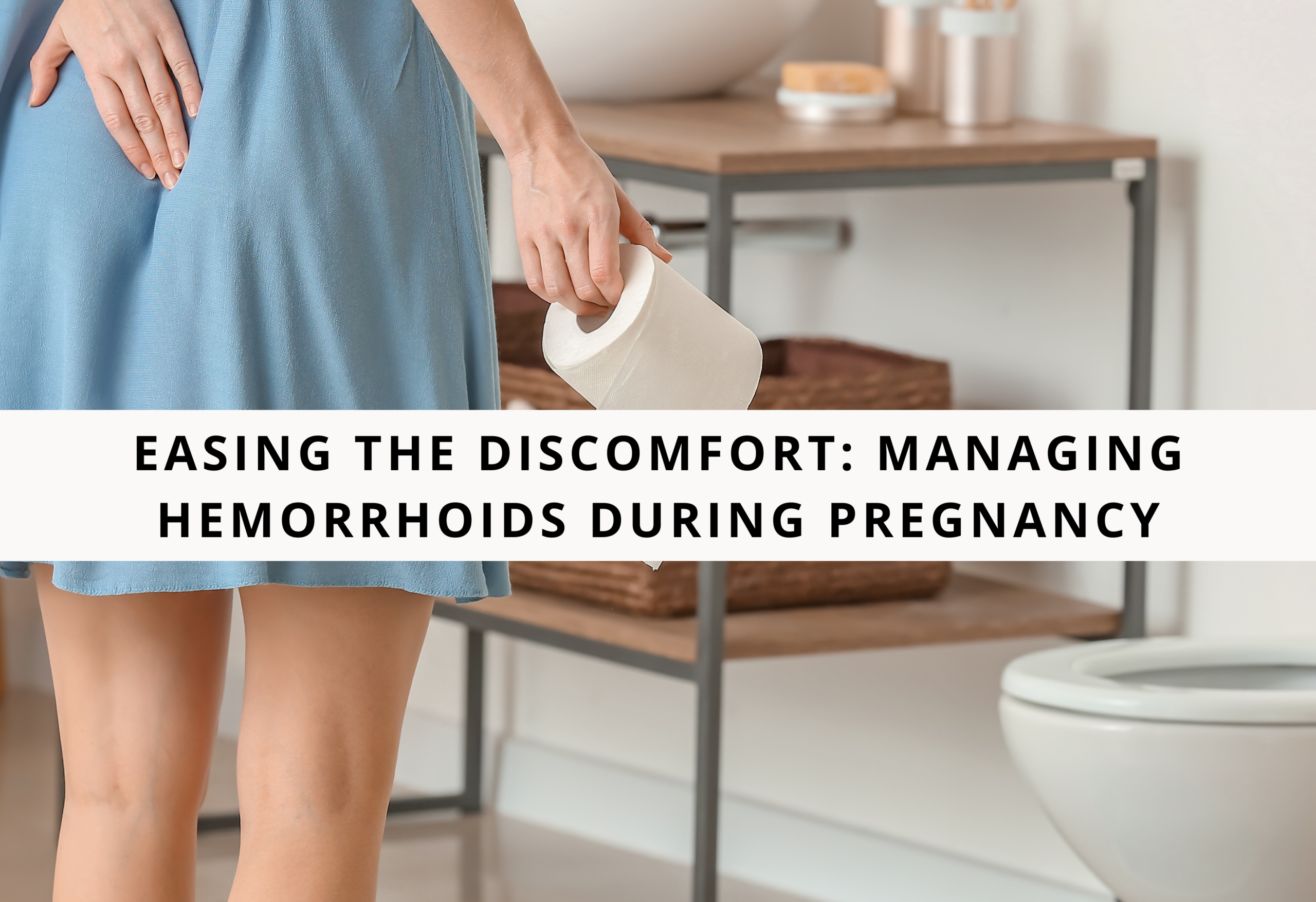Easing The Discomfort: Managing Hemorrhoids During Pregnancy
Hemorrhoids during pregnancy, a common yet rarely discussed issue, can cause significant discomfort, including itching, burning, and even bleeding during bowel movements. Primarily occurring due to increased pressure in the pelvic area and changes in blood flow, the likelihood of experiencing hemorrhoids escalates in the third trimester. Understanding the causes, implementing self-care measures, and knowing when to seek medical advice can help manage this uncomfortable condition.
Understanding Hemorrhoids During Pregnancy
Hemorrhoids are swollen veins in the rectum and anus, exacerbated by the increased pressure from the growing uterus, heightened levels of progesterone slowing down gastrointestinal motility, and the strain during bowel movements. While the incidence in pregnancy is higher compared to non-pregnant individuals, the good news is that most cases can be resolved with conservative medical therapy.
How to Prevent and Relieve Hemorrhoids During Pregnancy
Dietary Adjustments:
- Increase Fiber Intake: Consuming more fruits, vegetables, whole grains, and legumes can soften stool, making bowel movements less painful.
- Increase Daily Magnesium: Magnesium can help soften stool so you do not have to strain when having a bowel movement. It also helps prevent consitpation which can worsen hemorrhoids. Read more about all the awesome benefits of magnesium during pregnancy here.
- Hydration: Drinking plenty of water supports digestive health and prevents constipation, reducing the strain during defecation. Add Electrolytes and/or Trace Minerals to give yourself a boost on hydration and nourishing your body.
Lifestyle Modifications:
- Avoid Prolonged Sitting on the Toilet: Minimizing time spent on the toilet can reduce pressure on the pelvic veins.
- Use a Toilet Stool like a ‘Squatty Potty‘ when on the Toilet: Using a Squatty Potty or a similar toilet stool to elevate your feet while on the toilet can help prevent or alleviate hemorrhoids by mimicking a natural squatting position. This posture aligns the rectum in a way that reduces strain and pressure on the anal and rectal veins during bowel movements. The reduced strain facilitates a smoother and more complete evacuation of the bowels, decreasing the likelihood of constipation and the straining associated with it. Since straining and constipation are significant contributors to the development and worsening of hemorrhoids, adopting a position that minimizes these factors can be beneficial in preventing and managing this uncomfortable condition.
- Proper Anal Cleansing: Gentle cleaning after bowel movements can prevent irritation and discomfort.
- Kegel Exercises: Regularly performing Kegels strengthens pelvic floor muscles, improving circulation and reducing the risk of hemorrhoids.
- Warm-Water Sitz Baths: Soaking in warm water for 10-15 minutes several times a day can relieve itching and irritation.
Over-The-Counter (OTC) Remedies:
- Pain Relief Preparations: Products like Preparation H or Anusol can offer temporary relief from discomfort.
- Topical Hydrocortisone Cream or Rectal Suppositories: These can reduce inflammation and itching when used as directed.
When To Call The Midwife
While hemorrhoids are typically manageable with self-care and OTC treatments, certain symptoms necessitate professional evaluation:
- Persistent or Severe Discomfort: If your symptoms don’t improve with home remedies or if the pain becomes unbearable.
- Rectal Bleeding: While light bleeding can be normal, significant or persistent bleeding should be evaluated.
- Signs of Infection: Increased pain, warmth, redness, or pus around the anal area could indicate an infection.
- Complications: Symptoms such as thrombosis (clot within the hemorrhoid), severe swelling, or inability to retract the hemorrhoids may require more advanced treatments like band ligation or injection sclerotherapy.
Hemorrhoids, though an uncomfortable and sometimes painful condition of pregnancy, are largely treatable with conservative measures and lifestyle adjustments. However, maintaining open communication with your healthcare provider ensures that any complications can be addressed promptly, allowing you to focus more on the joy of your pregnancy journey.
FAQs about Hemorrhoids during pregnancy
- Why are hemorrhoids more common during pregnancy?
Hemorrhoids during pregnancy are primarily caused by increased pressure on the pelvic veins and the lower rectum from the growing uterus. Additionally, hormonal changes increase progesterone levels, leading to relaxed vein walls and slower gastrointestinal motility, further contributing to hemorrhoid development. The strain of bowel movements, especially with pregnancy-related constipation, can also exacerbate the condition. - Can hemorrhoids during pregnancy be prevented?
While not all cases of hemorrhoids can be prevented due to the physiological changes during pregnancy, several strategies can reduce your risk:
- Increase Fiber Intake: Eating a high-fiber diet helps prevent constipation, reducing strain during bowel movements.
- Stay Hydrated: Drinking plenty of water supports digestive health and stool softness.
- Exercise Regularly: Light to moderate exercise, like walking, can improve circulation and reduce constipation.
- Avoid Prolonged Sitting: Try not to sit for extended periods to decrease pressure on the pelvic veins.
Additional Resources on Hemorrhoids During Pregnancy
- How To Relieve Constipation In Pregnancy
- Hemorrhoids in pregnancy from Staroselsky, A., Nava-Ocampo, A. A., Vohra, S., & Koren, G.
- Hemorrhoids During Pregnancy from The Cleveland Clinic





